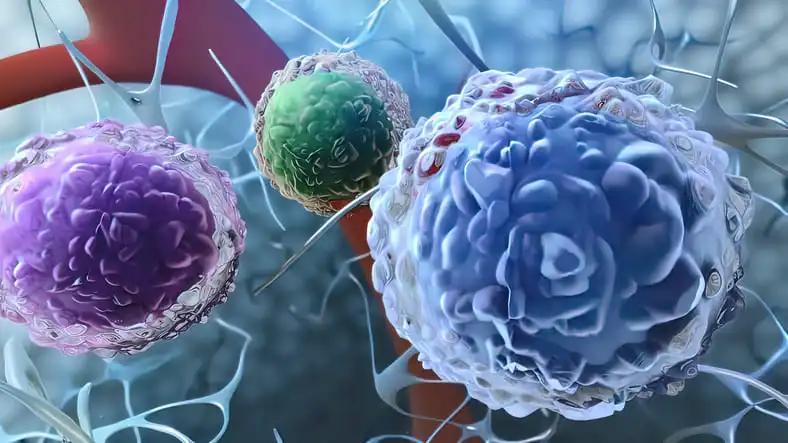KEY TAKEAWAYS
- The VISION phase II trial aimed to analyze the long-term efficacy and safety of tepotinib treatment in Asian patients with MET exon 14 skipping NSCLC from the VISION study.
- The primary endpoint was PFS. Secondary endpoints were DOR, PFS, OS, HRQoL, and safety.
- The study showed strong and lasting effectiveness in Asian patients with METex14 skipping NSCLC, especially as a first-line therapy, while maintaining QoL and a manageable safety profile.
Tepotinib, a MET inhibitor approved in several Asian countries for advanced METex14-skipping nonsmall cell lung cancer(NSCLC), showed lasting clinical benefit in the VISION trial, with an objective response rate(ORR) of 51.4% and median duration of response(DOR) of 18.0 months in a long-term follow-up (32.6 months).
Researchers aimed to analyze the long-term efficacy and safety of tepotinib treatment in Asian patients with MET exon 14 skipping NSCLC from the VISION study.
Patients with advanced METex14 skipping NSCLC, either treatment-naïve or previously treated, were administered tepotinib at a dose of 500 mg (450 mg active moiety) once daily. The primary endpoint was the objective response determined by independent review using RECIST 1.1 criteria. Secondary endpoints included duration of response (DOR), progression-free survival (PFS), overall survival (OS), health-related quality of life (HRQoL), and safety assessments.
About 106 Asian patients (Japan: 38, South Korea: 20, Taiwan: 12, China: 30, outside Asia: 6) with a median age of 70.5 years (range 52-89) were enrolled. Key findings include an ORR of 56.6% (95% CI: 46.6, 66.2), mDOR of 18.5 months (10.4, ne),mPFS of 13.8 months (10.8, 22.0), and mOS of 25.5 months (19.3, 36.4). Notably, clinical efficacy remained consistent across treatment lines (treatment‑naïve, n=50: ORR 64.0% [49.2, 77.1]; previously treated, n=56: ORR 50.0% [36.3, 63.7]). Stable HRQoL was observed regardless of baseline characteristics.
Treatment-related adverse events (TRAEs) occurred in 95.3% of patients, with common events including peripheral edema (62.3%; 7.5% Grade ≥3), blood creatinine increase (38.7%; 0.9% Grade ≥3), and diarrhea (32.1%; 0.9% Grade ≥3).
The study showed strong and lasting effectiveness in Asian patients with METex14 skipping NSCLC, especially as a first-line therapy, while maintaining QoL and a manageable safety profile.
Source: https://cattendee.abstractsonline.com/meeting/10925/presentation/2362
Clinical Trial: https://clinicaltrials.gov/study/NCT02864992
Ahn MJ, Kato T, Yang JC-H, Sakai H, Morise M, Chen Y-M, Han J-Y, Yang JJ, Zhao J, Hsia T-C, Berghoff K, Bruns R, Vioix H, Lang S, Johne A, Le X, Paik PK. Tepotinib in Asian Patients with MET exon 14 Skipping Non-small Cell Lung Cancer (NSCLC) in Long-term Follow-up From VISION.



